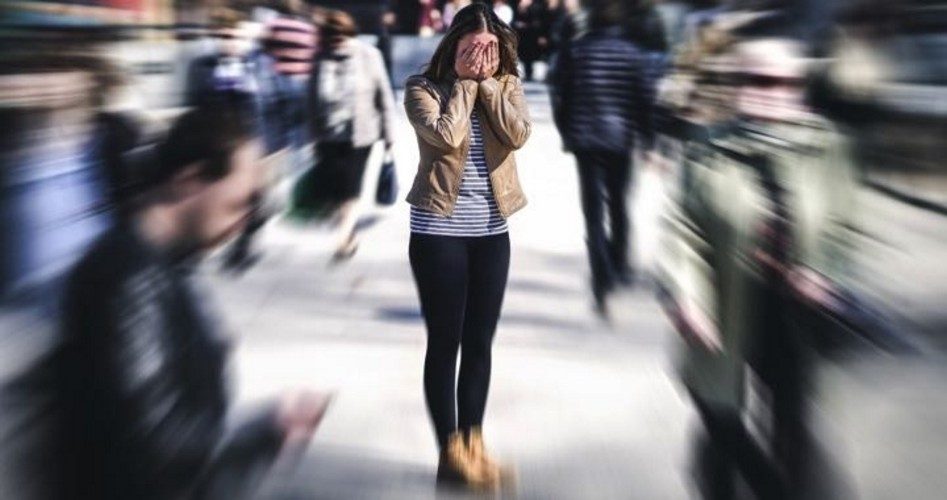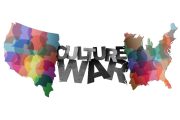
Podcast: Play in new window | Download ()
Subscribe: Android | RSS | More
Are many millennials embracing socialism — which most of them can’t even define — for lack of perspective? Do they see the glass as half empty when its three-quarters full, and when for most of history it contained, materially speaking, the equivalent of bitter dregs? A recent survey of millennials, and an analysis of it, point to this being the case.
As ZDNet reports:
Burnout is now recognized as a legitimate medical diagnosis, according to the International Classification of Diseases from the World Health Organization.
… East Weymouth, Mass.-based online acupuncture supply company Lhasa OMS surveyed 2,010 millennials in June 2019 to learn more about their stress levels. It wanted to find out what impact stress has on their lives and their coping methods.
Americans work longer hours and have more stress-related illnesses than in other countries. Stress can affect your thoughts, your behavior, and your health. Almost four out of five (78%) respondents believe that life is more stressful today than for previous generations.
The first question here is: What’s being implied? Is it the notion that life is objectively tougher today — or that people are simply experiencing more “stress”?
Since stress is a feeling, it’s a relative, subjective phenomenon. Sure, man’s nature being what it is, we know that taking certain actions will likely induce stress in a person (e.g., sticking a gun in his face). But consider a story.
Back in my “previous life” as an aspiring tennis pro, I knew an Australian player — good enough to once have competed in doubles at Wimbledon — who almost always seemed to win close matches. One time he played another experienced fellow, who himself had boasted a world ranking. After the Aussie prevailed, having executed some unbelievable shots in the clutch to do so, his perhaps incredulous opponent asked him how he could possibly try such low-percentage plays at such a juncture. His response?
“It’s very simply, mate: I just don’t care if I win or lose.”
Stress, again, is relative. A somewhat attractive but vain person may stress out more over his looks than an ugly fellow content to howl at the moon. Even experiencing stress when staring down a gun barrel has an attitudinal prerequisite: You must care about living.
In other words, millennials very well “may” be experiencing more stress than previous generations, but it reflects their emotionally ingrained priorities. As for any notion that life is objectively tougher today, American Thinker’s Casey Plunkett addressed this Wednesday, focusing on the surveyed millennials’ stated healthcare concerns. Providing a list of things not plaguing earlier generations, Plunkett writes that they didn’t have to worry about (all quotations are his):
• “the cost of healthcare, as there were no private/public healthcare coverage models in place … in rural areas, it was largely a barter system with the town doctor.”
• “which specialist to visit.” There were none. And MRIs and other advanced diagnostic equipment didn’t exist.
• “about portability of healthcare coverage, as there was no formalized healthcare coverage.”
• Chemotherapy’s side effects; the treatment hadn’t been invented.
• “about pros/cons of giving kids vaccinations” — they didn’t exist.
• “whether to enlist in the military, get a job or attend tech school/college, as the draft was COMPULSORY.”
• “about debt, as it was almost impossible to get a house loan — and credit cards, lines of credit and consumer loans weren’t yet invented.”
While Plunkett’s entire list is here, he also points out that during the Great Depression people didn’t stress out over “finding authentic, organically certified food” — “the objective was to find food,” period. At that time, in fact, “35% of those with ‘White Privilege’ were unemployed, living with a relative, starving, and begging for food and a job,” he adds.
Yet all Plunkett’s examples are from the 20th century. For most of history prior to this modern era, existence was far harsher still. Imagine living with the knowledge that barbarians could raid your town at any time and kill your family; that the local tyrant could torture or murder you on a whim; that starvation was just one drought away; or that the Black Plague, whose cause you couldn’t even fathom and which had decimated nearby villages, could kill you and yours next week. Talk about stress inducers — and people lived with such realities for millennia.
Or imagine living in the Roman Empire, its time’s most advanced civilization, where slavery and the brutality of the arena were norms and the average lifespan was estimated to be 22 years. Or imagine being a young Spartan boy in a military camp where your main food was blood soup and hunger was the norm. In contrast, today we can walk into supermarkets that stock an average of 15,000 items, all of which most of us can reasonably afford. Our time’s “commoners” live better than yesteryear’s kings.
Other factors the surveyed millennials said caused them more stress were the political climate and future of the nation and world (blame, in part, schools and media that lie about politics and “global warming”). But are such worries unique? Every age has had its “Repent! The end is nigh!” doomsayers and handwringers, with, again, Black Plague times coming to mind. The only difference is that today we’re missing the repent part.
The millennials did mention some things unique to our time, however, such as technology overload and online social pressure and bullying. Yet this is largely self-imposed. Social-media activity isn’t a necessity, and disconnecting from it is a solution. Moreover, feeling “pressure” based on online comments reflects askew priorities.
This isn’t to condemn millennials — or the generation that raised them (or the ones who raised them, and so on). After all, they are deprived in the most important way: spiritually.
Raised without authentic faith and being America’s most atheistic and morally relativistic/nihilistic generation, it’s not surprising that worldly concerns are consuming them. For how can you have deeper priorities when not believing in the deepest things, God and His Truth? How likely is it that you’ll avoid being materialistic when perceiving nothing beyond the material world? And won’t you, odds are, stress out more over this life when believing there’s no afterlife and over the fate of this world when supposing there’s no afterworld?
Regardless, it can’t rightly be said that people today are more “stressed” than our ancestors, even considering the phenomenon’s relative nature. After all, can we know how much stress past generations felt enduring their far tougher lives?
What we can know is that today’s generations are spoiled and don’t cherish their great gifts and, ominously, that when you don’t appreciate something, you often lose it — sometimes to an ism that starts with an s and ends with destruction.
Photo: Tero Vesalainen / iStock / Getty Images Plus


